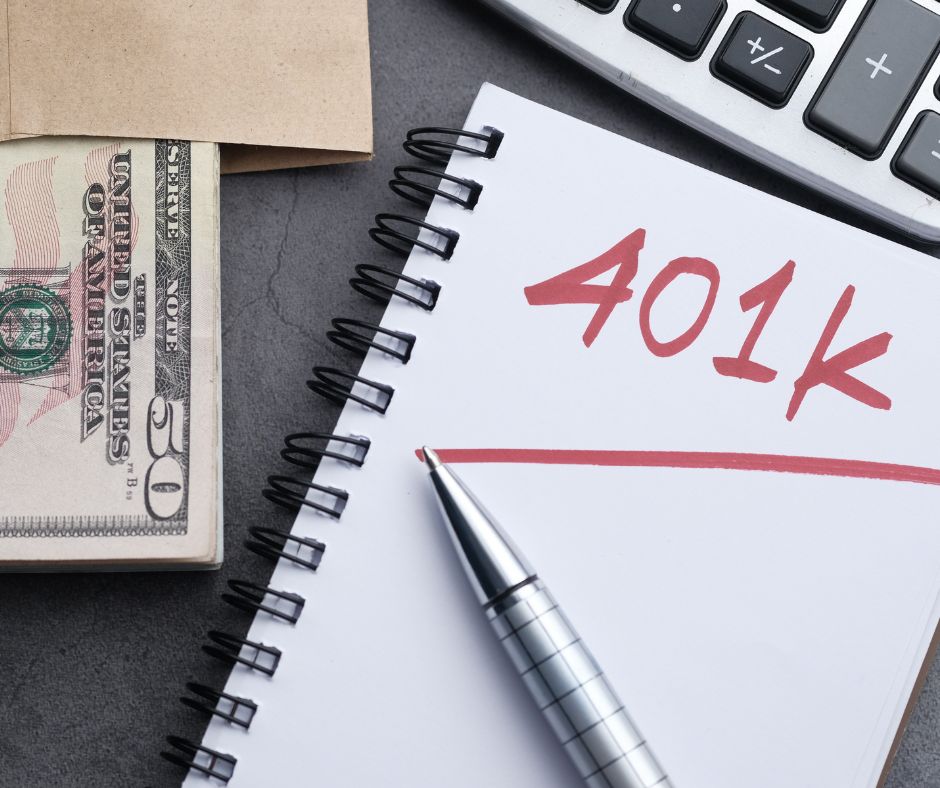Access Money Without Withdrawing from Your Retirement
It can be scary when you are in a sudden need for cash, whether you lost your job, have medical expenses or another emergency. While you may be able to withdraw $50,000 or 50% (whichever is less) from your 401(k) retirement plan without any penalties, there are better ways to access money without withdrawing from your retirement funds.

Bank or Credit Union Loan
The good news is that you typically do not have to involve any type of collateral to secure this type of loan (unsecured loan). However, interest rates are typically higher with this option (7% – 14%). If possible, look for ways to secure the loan with one of your assets, such as a boat or car (if you already own them), to get a lower rate.
0% APR Credit Card
This may be the right time to take advantage of 0% credit card balance transfer offers. This strategy can give you immediate access to cash, which is a better alternative than an early withdrawal from your retirement account.
Note: you will want to verify the terms. If the interest is “capitalized”, you could owe for accrued interest during the initial offer period once that timeframe expires. Typically, the 0% APR period ranges from 9 to 18 months, depending on the provider. So you want to make sure you can repay the entire credit card balance before this period ends. If not, you will have high-interest debt.
Home Equity Line of Credit
A home equity loan is a low-interest loan that allows you to borrow against the equity you have built up in your home over time. You get a variable repayment and interest rate instead of a fixed rate. You can opt for an interest-only repayment, but most often that comes loaded with a balloon payment and may be tough to afford in the long-term. Keep in mind with this variable interest rate loan option, you would likely see your rates (and payments) go up over time.
Most lenders would require that you have at least 20% equity to qualify for a home equity loan. You will want to watch out for fees such as appraisals, points and underwriting costs which can add to your loan balance.
This option will keep your retirement money safe while meeting your current cash needs.
Cash-Out Refinance
You can also refinance your mortgage and take cash out at closing to provide you with emergency funds. This may be a good option to get the cash you need.
401(k) loan
Let’s talk about accessing the cash in your 401(k). On the surface it may seem like a good option to pay down or eliminate the need to pay 15% or 16% interest on credit card debt. A 401(k) loan may seem like a better option because you are repaying yourself, but it still carries risk:
- If you leave or get fired from your job, you must quickly return the full balance, typically within 60 days, or you will be taxed for the unpaid balance.
- With a full cash-out, you will pay an early withdrawal penalty of 10% as well as income taxes on your distribution. (There are exceptions to the 10% early-withdrawal penalty that could apply depending on your age and work status; speak with a tax advisor about your situation.)
For example, if you withdrew the full $50,000, you could end up with only $32,500 after paying 35% in taxes and penalties (depends on your state and tax bracket). Plus, since the $32,500 is considered income, when added to your annual income, you may be pushed into a higher tax bracket, causing you to pay even more in taxes!
What is the best way to access money without withdrawing from your retirement?
True emergencies often leave you with limited choices when it comes to accessing money. Withdrawing money from your 401(k) retirement account should be a last resort. A home equity loan, home equity line of credit or cash-out refinance should be explored before a 401(k) loan.
Consult with a financial advisor and certified public accountant who can help you avoid taxes and penalties.


